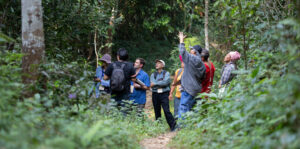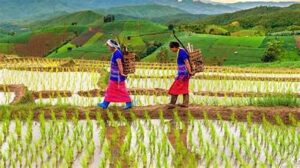
In the face of escalating environmental challenges, the integration of indigenous wisdom into modern sustainability practices offers promising solutions. Indigenous communities worldwide have long maintained a deep connection with their natural environments, developing sophisticated knowledge systems that can guide contemporary efforts to address pressing ecological issues. This article explores how harnessing this ancient wisdom can contribute to sustainable solutions for modern environmental problems.
The Value of Indigenous Knowledge
Indigenous knowledge, often passed down through generations, encompasses a rich understanding of ecosystems, climate patterns, and resource management. This traditional knowledge is holistic, encompassing not only the scientific aspects of environmental management but also the cultural, spiritual, and ethical dimensions. Indigenous communities have developed practices that ensure the sustainability of their resources, such as rotational farming, sustainable hunting methods, and conservation rituals.
Traditional Ecological Knowledge and Modern Science
Traditional Ecological Knowledge (TEK) refers to the cumulative body of knowledge, practices, and beliefs that indigenous peoples have developed over centuries about their local environments. TEK is increasingly being recognized by scientists and policymakers for its potential to enhance modern environmental management practices.
- Biodiversity Conservation: Indigenous practices such as sacred groves and protected areas have historically preserved biodiversity. These practices can inform contemporary conservation strategies, offering insights into how to maintain and restore ecosystems.
- Climate Change Mitigation: Indigenous knowledge about local climate patterns and natural phenomena can aid in developing adaptive strategies for climate change. For instance, traditional fire management techniques used by Aboriginal Australians have proven effective in preventing large-scale wildfires.
- Sustainable Agriculture: Indigenous agricultural practices, including polyculture and agroforestry, contribute to soil health and biodiversity. Integrating these methods into modern agricultural systems can enhance food security and sustainability.
Case Studies of Indigenous Wisdom in Action
- The Maori and Their Sustainable Fisheries: The Maori people of New Zealand have long practiced a form of sustainable fishing known as rahui, which involves temporarily closing areas to fishing to allow fish populations to recover. This practice has been successfully integrated into modern fisheries management, demonstrating how traditional practices can complement scientific approaches.
- The Quechua and Andean Agriculture: The Quechua people in the Andes have developed agricultural techniques adapted to high-altitude conditions, such as terracing and crop rotation. These methods are being studied for their potential to enhance the resilience of modern agriculture in the face of climate change.
- Indigenous Fire Management in Australia: Aboriginal Australians have used fire for thousands of years to manage landscapes and reduce the risk of catastrophic wildfires. Modern land management agencies are now incorporating these traditional fire practices into their strategies to manage fire risks and maintain healthy landscapes.
Challenges and Opportunities
While integrating indigenous wisdom into modern environmental practices holds great promise, several challenges must be addressed:
- Recognition and Respect: Indigenous knowledge must be recognized and respected as legitimate and valuable. This involves acknowledging the intellectual property rights of indigenous communities and ensuring they are involved in decision-making processes.
- Collaboration and Partnership: Effective collaboration between indigenous communities and scientific researchers requires building trust and mutual understanding. Partnerships should be based on respect, equality, and a shared commitment to sustainability.

- Preservation of Knowledge: As indigenous communities face pressures from modernization and climate change, there is a risk of losing valuable traditional knowledge. Efforts must be made to document and preserve this knowledge while supporting the communities that hold it.
Conclusion
Harnessing indigenous wisdom offers a pathway to more sustainable environmental solutions by bridging traditional knowledge with modern science. The integration of indigenous practices into contemporary environmental management can enhance biodiversity conservation, climate change mitigation, and sustainable agriculture. By respecting and collaborating with indigenous communities, we can develop more holistic and effective strategies to address today’s environmental challenges. Embracing this approach not only honors the contributions of indigenous peoples but also paves the way for a more sustainable future for all.

